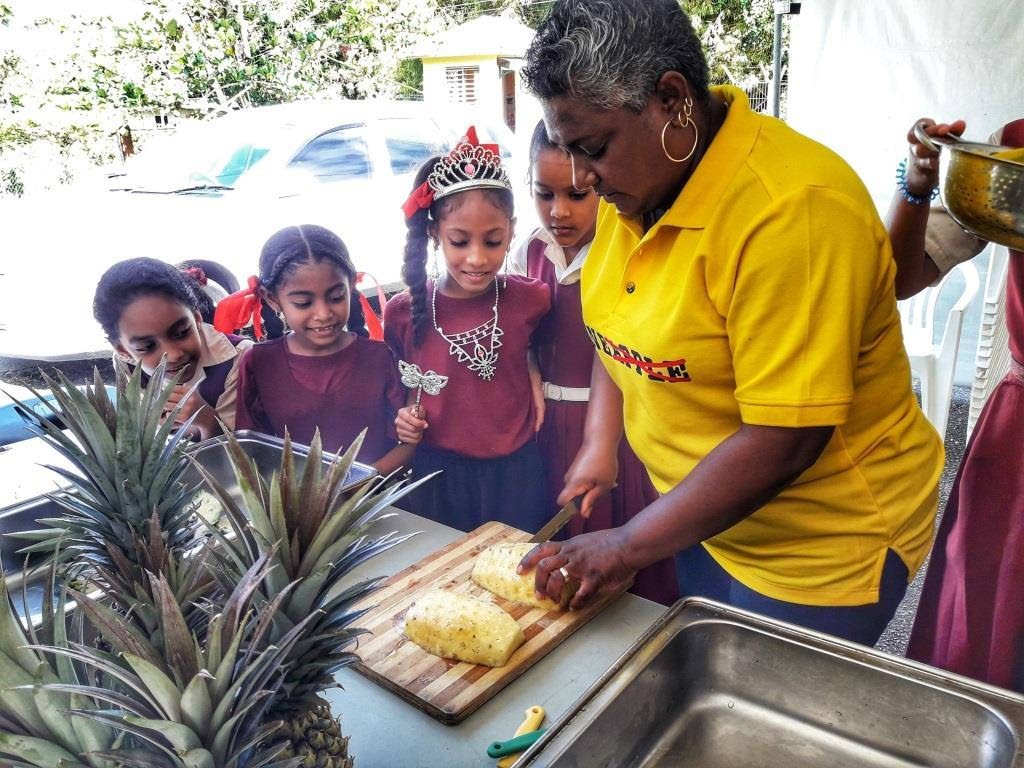Agricultural economist chides Government: No love for Sesame Street pine farmers

Even as TT’s pineapple farmers appeared on beloved children’s programme Seasme Street, agricultural economist Omardath Maharaj noted that none of the ministries nor its attendant agencies shared the announcement of the opportunity on any of its social media platforms nor media.
In a release Maharaj said, “While 150 countries around the world and generations to come will reflect on pineapples on Sesame Street as part of history; local farmers, farming families, teachers, children and those directly involved noted that not one social media platform associated with Ministries and agencies funded by taxpayers sought to share free global education and positivity to their target audience.”
The release highlighted Eat Local Day held on December 13 and Maharaj’s year end review, held at the Sisters Road Anglican School with the support of principal Clint Lee and a vibrant 4-h club. The release said, “The occasion allowed for serious reflection of the country’s food situation while encouraging children to actively participate in the local food value chain from production to consumption. The response and joy of over 120 students, staff and certainly thousands spread across the country with a willingness to support all that is good and made in TT but bewildered about food prices, variety, and quality issues leaves us in 2017 running the same treadmill. Our public education and awareness activities have fulfilled their mandate but it is time to act at a national level.”
It added, for years, only lip service has been paid to the fisheries and agriculture sectors. Speaking to the food import bill, Maharaj’s release said TT’s declining “foreign exchange earnings and reserves has allegedly put greater pressure on our capacity to import although the food import bill continues to rise.”
He added while politicians and policy have attempted to promote local food production, simultaneously greater facilitation and promotion was given to other sectors “which demand billions of dollars in imported food and beverages to survive.”
He said it was difficult to maintain the dependency on food imports after “several years of fiscal budget deficits and economic hardship, damage to the major food producing areas from flooding, dilapidated infrastructure, tenancy and other issues.”
Maharaj presented the solution to TT’s food problem, saying “the food production sector continues to be misunderstood and suffers from a history of underinvestment and failed policy.
“In order to systematically reduce our reliance on foreign food products and bolster our own capacity, there must be a fundamental shift in the sector’s priority, raising it on the national development agenda which is to be supported by an overarching national policy framework for sustainable agriculture and rural development.
“The stakeholders of the sector will then only begin to be motivated through greater consultation, collaboration, and coordination of the already limited resources since they have grown accustomed to doing more with less.”
The higher prices in local markets and increased demand for imported equivalents as well as foreign exchange pressure put food and nutrition security “out of the hands” of people who need it most.
Maharaj ended by wishing TT peace, love and joy for the new year on behalf of the Tableland Pineapple Farmers Association, Felicity Charlieville Fishing Association, National 4-H Leaders Council, rural and coastal communities by extension.

Comments
"Agricultural economist chides Government: No love for Sesame Street pine farmers"